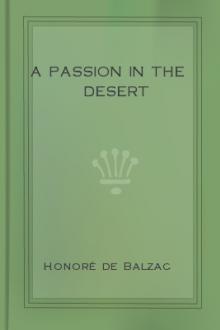Genre Short Story. Page - 3

vulgar, and he shrank from the word. To lessen the sting of his disappointment, he pictured her to himself and strove to forget her faults.
On the following morning he went to his school very early. The girls were not as obtrusive as they had been. Miss Jessie Stevens did not bother him by coming up every five minutes to see what he thought of her dictation, as she had been wont to do. He was rather glad of this; it saved him importunate glances and words, and the propinquity of girlish forms, which had been more trying still. But what was the cause of the change? It was evident that the girls regarded him as belonging to Miss Conklin. He disliked the assumption; his caution took alarm; he would be more careful in future. The forenoon melted into afternoon quietly, though there were traces on Jake Conklin's bench of unusual agitation and excitement. To these signs the schoolmaster paid small heed at the moment. He was absorbed in thinking of the evening before, and in trying to appraise each of Loo's w

was dark. So he sat down upon a stone and buried his face in his hands, to wait in the Land of Negation and Denial till the light came.
And it was night in his heart also.
Then from the marshes to his right and left cold mists arose and closed about him. A fine, imperceptible rain fell in the dark, and great drops gathered on his hair and clothes. His heart beat slowly, and a numbness crept through all his limbs. Then, looking up, two merry wisp lights came dancing. He lifted his head to look at them. Nearer, nearer they came. So warm, so bright, they danced like stars of fire. They stood before him at last. From the centre of the radiating flame in one looked out a woman's face, laughing, dimpled, with streaming yellow hair. In the centre of the other were merry laughing ripples, like the bubbles on a glass of wine. They danced before him.
"Who are you," asked the hunter, "who alone come to me in my solitude and darkness?"
"We are the twins Sensuality," they cried. "Our father's n

nse of keeping herhere on account of his pride, under the thin pretext of trying to"cure" her. She knew that Sally Atherly of Rough and Ready wasn'tconsidered fit company for "Atherly of Atherly" by his fine newfriends. This and much more in a voice mingling maudlin sentimentwith bitter resentment, and with an ominous glitter in her bloodshotand glairy eyes. Peter winced with a consciousness of thehalf-truth of her reproaches, but the curiosity and excitementawakened by the revelations of her frenzy were greater than hisremorse. He said quickly:--
"You were speaking of father!--of his family--his lands andpossessions. Tell me again!"
"Wot are ye givin' us?" she ejaculated in husky suspicion, openingupon him her beady eyes, in which the film of death was alreadygathering.
"Tell me of father,--my father and his family! his great-grandfather!--the Atherlys, my relations--what you were saying.What do you know about them?"
"THAT'S all ye wanter know--is it? THAT'S what ye'r' comin'

rubbed a short, thick, stumpy beard, that bore ageneral resemblance to a badly-worn blacking-brush, with the palmof his hand, and went on, "You had a good time, Jinny?"
"Yes, father."
"They was all there?"
"Yes, Rance and York and Ryder and Jack."
"And Jack!" Mr. McClosky endeavored to throw an expression of archinquiry into his small, tremulous eyes; but meeting the unabashed,widely-opened lid of his daughter, he winked rapidly, and blushedto the roots of his hair.
"Yes, Jack was there," said Jenny, without change of color, or theleast self-consciousness in her great gray eyes; "and he came homewith me." She paused a moment, locking her two hands under herhead, and assuming a more comfortable position on the pillow. "Heasked me that same question again, father, and I said, 'Yes.' It'sto be--soon. We're going to live at Four Forks, in his own house;and next winter we're going to Sacramento. I suppose it's allright, father, eh?" She emphasized the question with a slight kick

pon my beard and ear-locks, and you will understand that you will receive fair treatment from me. I want to earn a Mitzvah (good deed) and a little money thereby.'
Then he cautioned me not to leave the station and go out into the street, because in the street were to be found Jews without beards, who would inform on me and give me up to the police. 'The world does not contain a sea of Kazelias,' said he. (Would that it did not contain even that one!)
Then he continued: 'Shake out your money on the table, and we will see how much you have, and I will change it for you.'
'Oh,' said I, 'I want first to find out the rate of exchange.'
When Kazelia heard this, he gave a great spring and shrieked 'Hoi, hoi! On account of Jews like you, the Messhiach (Messiah) can't come, and the Redemption of Israel is delayed. If you go out into the street, you will find a Jew without a beard, who will charge you more, and even take all your money away. I swear to you, as I sh

The merchants, nobles, and the slaves lucky enough to attend had waited outside Dan Trex's arena for days. They knew the value of entertainment in such a dark world. They wore cowls to protect themselves from the sun as they waited. Entire businesses thrived on the forced mercantile of the captive audience. Food went for thrice its cost to those waiting near the entrance. Water went for five times as much.
The arena was as old as the city, built in the days of the old empire for a king now long forgotten. The octagonal arena was a machine, an engine that built warriors out of the raw material of flesh, blood, and steel. Now, thousands of years later, it still served that purpose.
The machine had built Dan Trex's army, half a million of the most ruthless and well trained soldiers to ever walk the planet. While one hundred and fifty thousand civilians and slaves got drunk, gambled, shat, fucked, and slept on the stone steps; one hundred thousand of his men sat in silence wearing black a

'to live in love with Onas'--as they called him--'and with the children of Onas, as long as the sun and the moon shall endure.' 'This treaty of peace and friendship was made,' as Bancroft says, 'under the open sky, by the side of the Delaware, with the sun and the river and the forest for witnesses. It was not confirmed by an oath; it was not ratified by signatures and seals; no written record of the conference can be found; and its terms and conditions had no abiding monument, but on the heart. There they were written like the law of God and were never forgotten. The simple sons of the wilderness, returning to their wigwams, kept the history of the covenant by strings of wampum, and, long afterwards, in their cabins, they would count over the shells on a clean piece of bark and recall to their own memory, and repeat to their children or to the stranger, the words of William Penn.' The world laughed at the fantastic agreement; but the world noticed, at the same time, that, whilst the neighboring colo

to strength. I think the two of them are rather aghast at their own daring; they've been planning, all the way home, how they're going to get the "goods" through the Customs.
Mr. Armes mentioned to me the proposition he and the Second Mate had in mind. This was after they'd bought the stuff, and I told him it would not interfere with anything I was doing, and they could go ahead. Only, if the Customs dropped on the saccharine, they must own up and pay the fine themselves. For I was not going to have the ship fined.
This was on the bridge, and he grinned at me, warningly.
"Sst! Remember the man at the wheel, Sir!" he said.
The row they had to-day came about through Mr. Armes proposing to hide the st

as at sea on aclear day, with one line of light, definite as the cut of a sword.
The Provencal threw his arms round the trunk of one of the palm trees,as though it were the body of a friend, and then, in the shelter ofthe thin, straight shadow that the palm cast upon the granite, hewept. Then sitting down he remained as he was, contemplating withprofound sadness the implacable scene, which was all he had to lookupon. He cried aloud, to measure the solitude. His voice, lost in thehollows of the hill, sounded faintly, and aroused no echo--the echowas in his own heart. The Provencal was twenty-two years old:--heloaded his carbine.
"There'll be time enough," he said to himself, laying on the groundthe weapon which alone could bring him deliverance.
Viewing alternately the dark expanse of the desert and the blueexpanse of the sky, the soldier dreamed of France--he smelled withdelight the gutters of Paris--he remembered the towns through which hehad passed, the faces of his comrades, the most

know, I know! That will do-o-o, that will do-o-o!" cooed theWood-Pigeon obstinately in her soft, foolish little voice, withoutpaying the least attention to Mother Magpie's directions.
"We all know that--anything more?" chirped the chorus of birds, tryingto conceal how anxious they were to know what came next, for the nestswere only half finished.
But Mother Magpie was thoroughly disgusted, and refused to go on withthe lesson which had been so rudely interrupted by her pupils.
"You are all so wise, friends," she said, "that surely you do not needany help from me. You say you know all about it,--then go on and finishyour nests by yourselves. Much luck may you have!" And away she flew toher own cosy nest in the elm tree, where she was soon fast asleep,forgetting all about the matter.
But oh! What a pickle the other birds were in! The lesson was but halffinished, and most of them had not the slightest idea what to do next.That is why to this day many of the birds have never learned to buil